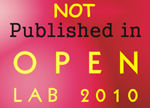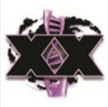The Register Critical of "Diagnosis-By-Google"
There's a wonderfully snarky article by Andrew Orlowski in The Register that criticizes a recent publication appearing in the esteemed British Medical National Enquirer, er, Journal.
First Mr. Orlowski:
Googling yourself fitter?Brilliant! I SO want a job at The Register! I can learn to spell "favour" correctly...
Medical study needs health warning
By Andrew Orlowski
Published Friday 10th November 2006 17:34 GMT
Can you do science with just 26 case studies? Two doctors in Australia seem to think so.
"Searching with Google may help doctors to formulate a differential diagnosis in difficult diagnostic cases," they conclude. The study, published in the British Medical Journal today, appears to give the search engine a clean bill of health - and their cheerful conclusion has been gleefully reported in the popular press today.
On closer examination, however, we discover doctors Hangwi Tang and Jennifer Hwee Kwoon Ng used just 26 case studies. And it gets worse, the closer you look. Google only found the correct diagnosis 58 per cent of the time.
The "researchers" were also remarkably generous with their definition of a correct diagnosis. If one of the top three results returned by Google was correct, it was considered a success.
And the abstract from original publication is below. If you can, be sure to read the rapid replies, and post one of your own.
Tang H, Ng JHK(2006). Googling for a diagnosis--use of Google as a diagnostic aid: internet based study. BMJ 2006.
Objective To determine how often searching with Google (the most popular search engine on the world wide web) leads doctors to the correct diagnosis.
Design Internet based study using Googleto search for diagnoses; researchers were blind to the correct diagnoses.
Setting One year's (2005) diagnostic cases published in the case records of the New England Journal of Medicine.
Cases 26 cases from the New England Journal of Medicine; management cases were excluded.
Main outcome measure Percentage of correctdiagnoses from Google searches (compared with the diagnoses as published in the New England Journal of Medicine).
Results Google searches revealed the correct diagnosis in 15 (58%, 95% confidence interval 38% to 77%) cases.
Conclusion As internet access becomes more readily available in outpatient clinics and hospital wards, the web is rapidly becoming an important clinical tool for doctors. The use of web based searching may help doctors to diagnose difficult cases.
Subscribe to Post Comments [Atom]












0 Comments:
Post a Comment
<< Home